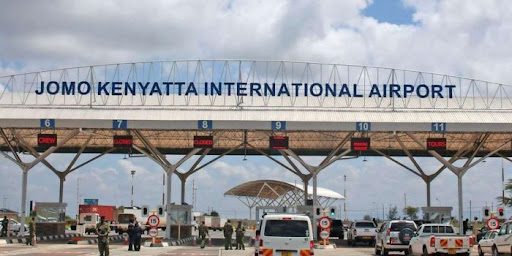
BY CALEB MWAMISI
The
Adani Group’s involvement in the development and operation of Jomo Kenyatta
International Airport through a Public-Private Partnership has sparked
significant debate in Kenya.
For
years, JKIA has been a vital gateway not only to Kenya but also for the entire
East African region. It serves as a critical hub for international flights,
connecting Africa to Europe, Asia and the Americas. Despite its importance, the
airport has faced numerous challenges, ranging from infrastructure limitations
to operational inefficiencies that have affected the country’s aviation sector
for eons.
Jomo
Kenyatta International Airport (JKIA) has been struggling to manage the
increasing flow of passengers and cargo, resulting in significant congestion
and operational inefficiencies.
With
the rising number of travellers using the airport, passengers frequently
encounter long wait times and overcrowded terminals, which detracts from their
overall travel experience. The airport's current infrastructure, including
check-in facilities and baggage handling systems, has not been adequately
updated to accommodate the growing demand. This inadequacy poses a risk to Kenya’s
competitive position as a premier aviation hub in East Africa, particularly as
neighbouring countries ramp up their airport modernisation efforts.
In
contrast, nations like Ethiopia and Rwanda have made considerable strides in
enhancing their aviation infrastructure, positioning themselves as viable
competitors. Addis Ababa’s Bole International Airport has emerged as a
significant transit point for international airlines, largely due to Ethiopian
Airlines’ expansive network and strategic marketing initiatives.
Similarly,
Rwanda is developing Bugesera International Airport through a PPP model,
highlighting how strategic investments can revolutionise a country’s aviation
landscape. These advancements in neighbouring countries threaten to erode
Kenya's traditional dominance in the region's aviation sector. To retain its
status, Kenya must act swiftly to upgrade JKIA, making partnerships like the
one proposed with the Adani Group not just beneficial but also essential for
the nation's economic future.
The
government is increasingly turning to PPPs as a strategic approach to address
the significant infrastructure deficits facing the country. With a high public
debt burden constraining fiscal space, the government recognises that
traditional funding mechanisms may not be sufficient to meet the demands of
large-scale projects, particularly in the transport and energy sectors.
Engaging
private entities like the Adani Group allows the government to leverage private
capital, expertise and efficiency, while minimising the immediate financial
burden on taxpayers. This shift aligns with global best practices, where PPPs
have been successfully implemented to enhance service delivery, spur economic
growth and foster innovation in various sectors.
By
utilising the Build, Operate and Transfer model, the government can ensure that
critical infrastructure, such as JKIA, is developed and managed by experienced
private operators, while retaining ownership and control over the asset.
The
advantages of PPPs over traditional investment avenues are significant and
multifaceted. Firstly, PPPs can accelerate project delivery by enabling the
private sector to mobilise resources and expertise more efficiently than public
agencies, which often face bureaucratic hurdles.
This
model also facilitates risk sharing between public and private entities,
allowing the government to transfer some of the financial, operational and
market risks associated with infrastructure projects to the private partner.
Furthermore,
PPPs can lead to improve quality and innovation in service provision, as
private operators typically bring in cutting-edge technology and best practices
to enhance operational efficiency.
Ultimately,
these partnerships not only help alleviate the immediate funding pressures on
the government but also promote sustainable economic development by cultivating
an environment where private investment can thrive, thereby creating jobs and
stimulating local economies.
Through
strategic partnerships, Kenya can harness the expertise and resources of
leading global players like the Adani Group to transform its infrastructure
landscape and drive long-term economic growth.
The financial benefits of this partnership are clear. JKIA is a significant source of revenue for Kenya, earning about Sh10 billion annually. However, with Adani’s planned expansion, these revenues are expected to increase significantly, driven by higher passenger volumes, improved cargo handling and more efficient airport operations.
The deal is projected to generate an additional
Sh30 billion annually once the expanded facilities are operational, a
substantial increase that could provide a much-needed boost to the economy.
More
importantly, the quality of services to be introduced by Adani is expected to
elevate JKIA to international standards. With Adani’s extensive experience in
managing airports across the globe, Kenyan aviators and passengers alike will
benefit from enhanced facilities, shorter wait times and more seamless
operations.
The
introduction of new technologies, better customer service protocols and
state-of-the-art infrastructure will not only improve the travel experience but
also make JKIA a more attractive destination for international airlines. This,
in turn, could lead to increased tourism and business travel, further boosting
the country’s economy.
While
concerns have been raised about the transparency of the deal, and fears of
losing a national asset to foreign investors have circulated, it is important
to clarify that the partnership is structured in such a way that Kenya retains
ownership of the airport.
Furthermore,
the country stands to gain far more in terms of revenue, job creation and
enhanced global standing. The comparison with Rwanda’s Bugesera International
Airport is telling.
Rwanda,
despite being a much smaller economy, has managed to secure a partnership with
Qatar Airways, which has significantly raised the profile of its aviation
industry. Kenya, with its larger economy and more strategic location, has the
potential to achieve even greater success through the Adani deal. It presents a
crucial opportunity for Kenya to revitalise its aviation sector and strengthen
its position as a regional hub.
While
it is essential to address public concerns through transparency and effective
oversight, the potential benefits of the partnership — from improved
infrastructure to increased revenue and job creation — make it a necessary step
for the country’s long-term economic growth. Kenya is set not to lose but to
gain immensely from this well-structured public-private partnership.

 © The Star 2024. All rights reserved
© The Star 2024. All rights reserved